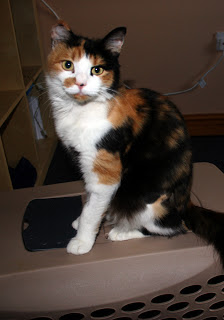Occasionally when you read newspaper accounts of RSPCA prosecutions you'll see that the defendant states that they did seek veterinary help for their animal but couldn't find a vet who would accept people who are on benefits.
People who call our branch helpline sometimes say this and it can occasionally be very difficult to persuade them that they must go to the private vet if their pet is suffering and they are not registered to use the out of hours emergency service attached to our clinic.
Of course the idea that vets are operating some kind of selection process and refusing to add anyone who's not in employment to their client list is nonsense, but I don't think owners who say this are simply making up a story to excuse themselves.
People who call our branch helpline sometimes say this and it can occasionally be very difficult to persuade them that they must go to the private vet if their pet is suffering and they are not registered to use the out of hours emergency service attached to our clinic.
Of course the idea that vets are operating some kind of selection process and refusing to add anyone who's not in employment to their client list is nonsense, but I don't think owners who say this are simply making up a story to excuse themselves.
The original conversation with the private vet's reception probably goes something like this:
Animal Owner] My dog's not himself.
Receptionist] Oh dear! Do you want to bring him in today?
Animal Owner] How much will it cost?
Receptionist] £30 for a consultation plus the cost of treatment.
Animal Owner] I'm on benefits; what would I have to pay?
Receptionist] We're a business; we can't give a reduction to people on benefits.
Animal Owner] (puts phone down)
From the point of view of the animal's owner; they would go to a vet if only there was a vet who accepted claimants (by which they mean charging reduced rates).
From the point of view of the vet surgery; they are not failing in their obligation to provide pain relief even if the owner cannot pay because that's not what they've said. They haven't refused to see the animal; they have simply said there won't be a reduction in price.

